Chamberlain, But Much Worse
Donald Trump will travel to the former Russia with one goal: the Nobel Peace Prize.
A brutal imperialist dictator has invaded his European neighbor, unilaterally claiming sovereign territory for himself. The dictator is threatening to go further and there is alarm across Europe. A gullible western leader has agreed to meet the dictator in a location that places them on equal footing for negotiations.
They omit the nation being threatened from the talks, giving the imperial regime exactly the leverage it needs to make demands. The dictator claims if he just gets what he wants this time, he won’t need to go any further. The westerner publicly entertains these demands, which is seen by the dictator as a sign of weakness, which he immediately capitalizes on through propaganda.
Who are we talking about?
As you may have already gathered, it is a trick question. The parallels between Chamberlain-Hitler in 1938, and Trump-Putin in 2025 are stark. However, because Trump is far easier to manipulate than Chamberlain, the results may be far worse.
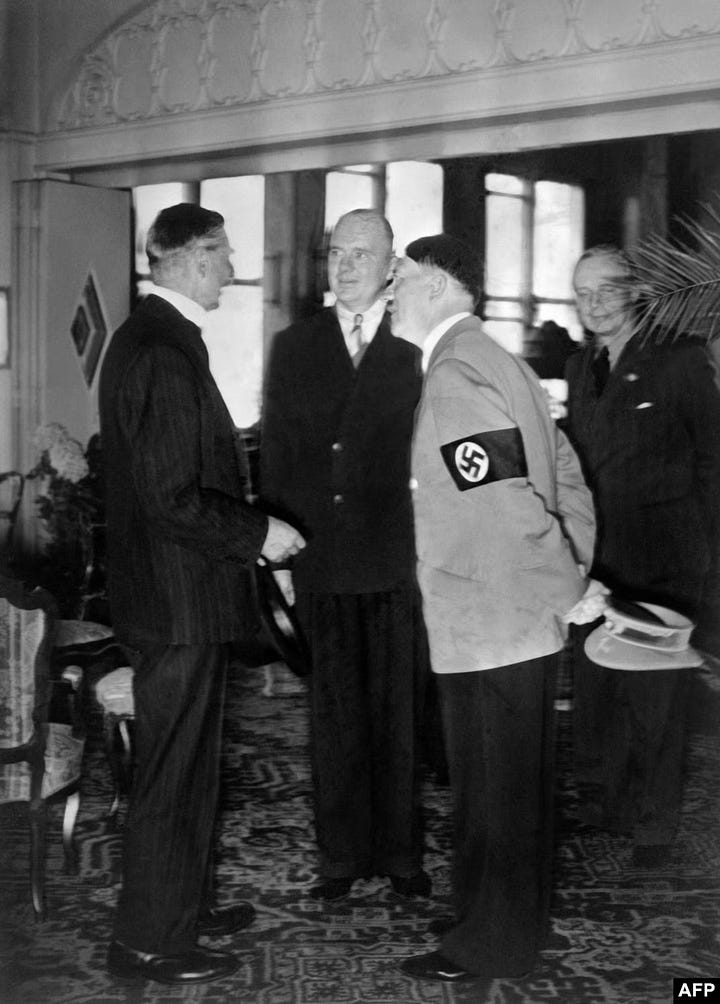
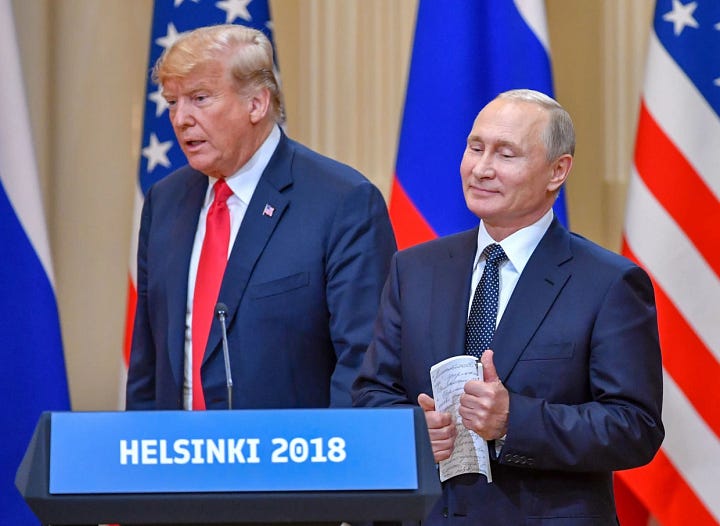
In March of 1938, Hitler had executed the Anschluss or the annexation of Austria without a fight—or any significant objections from Western Europe. Taking this as a sign, Hitler set his sights on Czechoslovakia and demanded the annexation of the border region of Sudetenland which had a German-speaking population which Hitler leveraged as an excuse.
Neville Chamberlain, Prime Minister of the United Kingdom, a nation still traumatized by WWI, elected not to push back on Hitler, and instead instituted a policy of appeasement—with the goal of keeping peace in Europe. As German troops built up on the border, Chamberlain flew to meet Hitler, not once, but three times on Hitler’s territory in September 1938. Each time Chamberlain lost ground—a weak diplomat taken advantage of by a predator.
The first meeting was at the Berchtesgaden, Hitler’s mountain retreat, on September 15th, in which Hitler demanded to annex the Sudetenland on the basis of self-determination for ethnic Germans. Czechoslovakia was not invited to the “negotiations.” Chamberlain did not agree to Hitler’s terms at the meeting but agreed to take them back to the British Cabinet and the French government.
Chamberlain’s mistakes were manifold. By traveling to Hitler, to entertain Hitler’s demands, with a clear personal need for a result, Chamberlain gave away every bit of leverage he had. This was seen as a green light by Hitler, and when Chamberlain came back to Bad Godesberg a week later with a Franco-British proposal to transfer Sudetenland peacefully in stages with international oversight, Hitler took advantage again, and demanded even more territory—immediately.
After returning to London, on September 27th, 1938, Chamberlain said:
After my first visit to Berchtesgaden I did get the assent of the Czech Government to proposals which gave the substance of what Herr Hitler wanted, and I was taken completely by surprise when I got back to Germany and found that he insisted that the territory should be handed over to him immediately.
The fact that Chamberlain was “taken completely by surprise” by Hitler’s escalating demands was greeted by alarm in Europe and a third meeting was set in Munich, this time with Italian Fascist Benito Mussolini hosting along with President Daladier of France. Once again, Czechoslovakia was not invited. This resulted in the Munich Agreement, in which Hitler promised not to go further in Czechoslovakia or Europe. Chamberlain, seemingly more aware of his image than the substance, declared “peace for our time.”
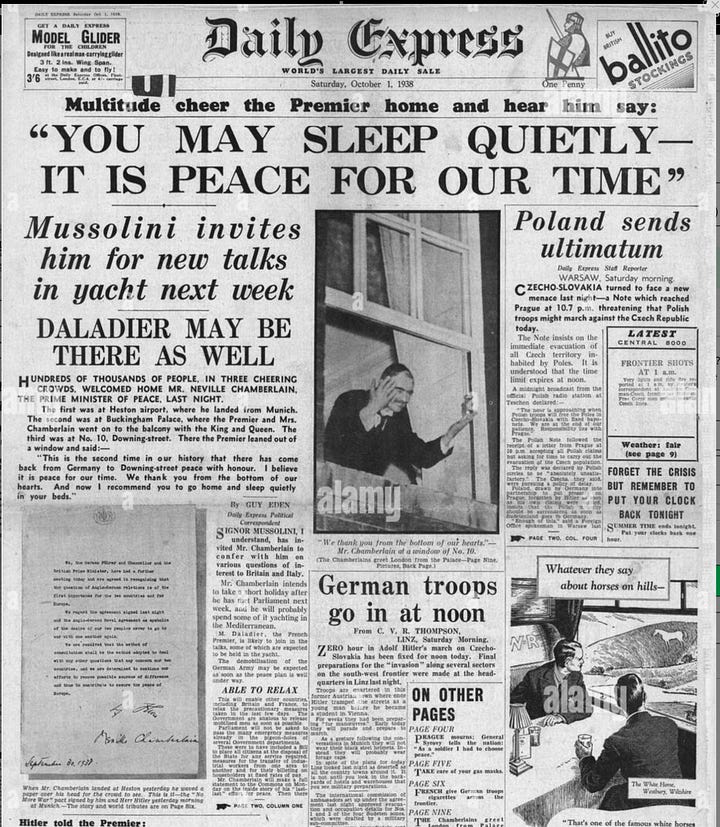
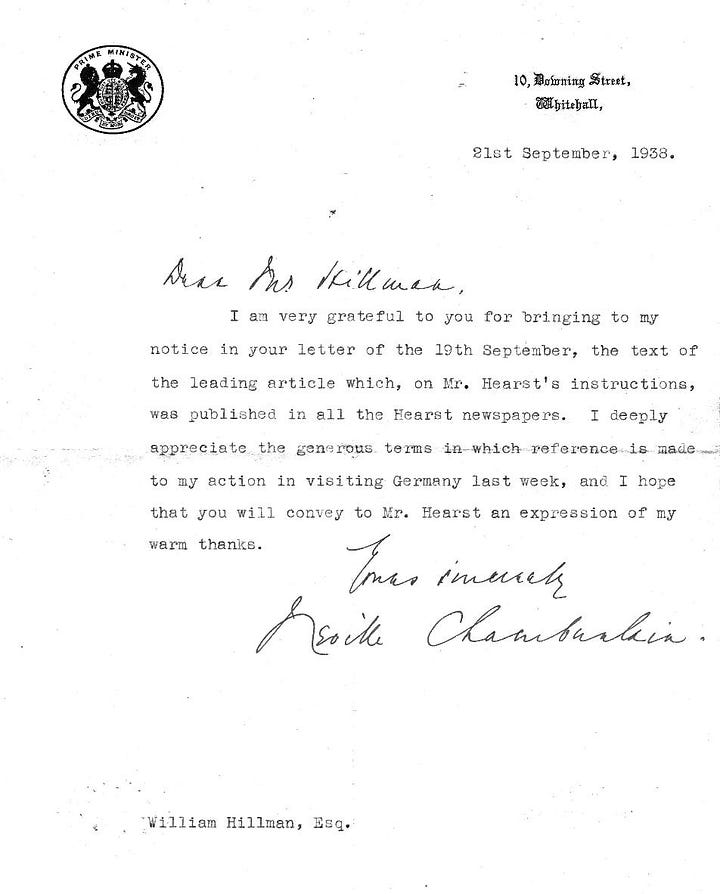
Six months later, after a series of deliberate provocations by the Nazis, Hitler invaded the rest of Czechoslovakia which he occupied through WWII, murdering around 300,000 mostly Jewish citizens. The lessons of Chamberlain’s folly, the belief that goodwill and honest negotiations can appease a genocidal dictator, are clear to history.
Nevertheless, 87 years later, we have a disturbingly parallel scenario. But Donald Trump is no Neville Chamberlain. He is far, far worse. Chamberlain was a diplomat, a historically weak one, but he was actively trying to deal with a recognizable threat to save his people from another bloody war, so Hitler was able to use what he knew were Chamberlain’s political needs against him. For Putin, it’s not nearly so complicated.
Donald Trump wants a Nobel Peace Prize.
For former KGB officer Vladimir Putin and the extremely sophisticated psychological warfare capabilities he controls, manipulating Donald Trump is an embarrassingly simple task:
Identify the source of his psychological needs.
Give him a way to achieve those needs that matches your own goals.
This is the basic idea behind the KGB psychological warfare technique of “reflexive control.” Make them behave how you want, while allowing them to think it’s their own free will. Alaska will not be about negotiation, it will be a performance—with Putin as the scriptwriter and Trump as the fading star.
Donald Trump is deeply obsessed by the Nobel Peace Prize. He has expressed the belief that it was unfairly given to Obama on countless occasions, and thinks that it will help secure his “legacy” as the “Peace President” if he achieves “peace” between war criminal Vladimir Putin and the country he’s invading, Ukraine.
Putin is keenly aware of Trump’s malignant narcissism, as have the Russian intelligence services for four decades. Trump is not a complicated man to diagnose or manipulate. He believes everything is a transaction that he has to win.
But his core psychological foundation has been wildly destabilized by Epstein. He is in the last stages of narcissistic collapse—a desperate war to keep his psyche above water as his own demons batter his ego. He sees Putin, not as a negotiating partner, or a dangerous imperialist, but simply as a way to achieve a “win”—although he is already hedging and looking for a second meeting with Zelenskyy:
President Donald Trump suggested in a radio interview Thursday that Ukrainian President Volodymyr Zelensky could join him and Russian President Vladimir Putin in Alaska for a second meeting after Trump holds a summit with Putin on Friday. Trump said remaining in Alaska “would be by far the easiest” way for the three leaders to hold talks. But Trump also cautioned the meeting with Putin could go poorly — he put the odds of failure at 25 percent — and said he would return to Washington immediately in that case.
Trump has come bearing gifts for the 21st century version of the Sudetenland talks. As a man who only conceives of the world through transactions, Trump wants to give away American minerals in exchange for peace—a proposition that Putin will surely see as a concession, and leverage.
With all of this in mind, the direction this appears to be heading is that Putin will agree to some “interim ceasefire” if Ukraine will agree to allow Russia to occupy its territory—without necessarily giving up the land formally. This would, according to reporting, look like Israel’s occupation of the Palestinian West Bank—hardly a positive prospect for Ukraine.
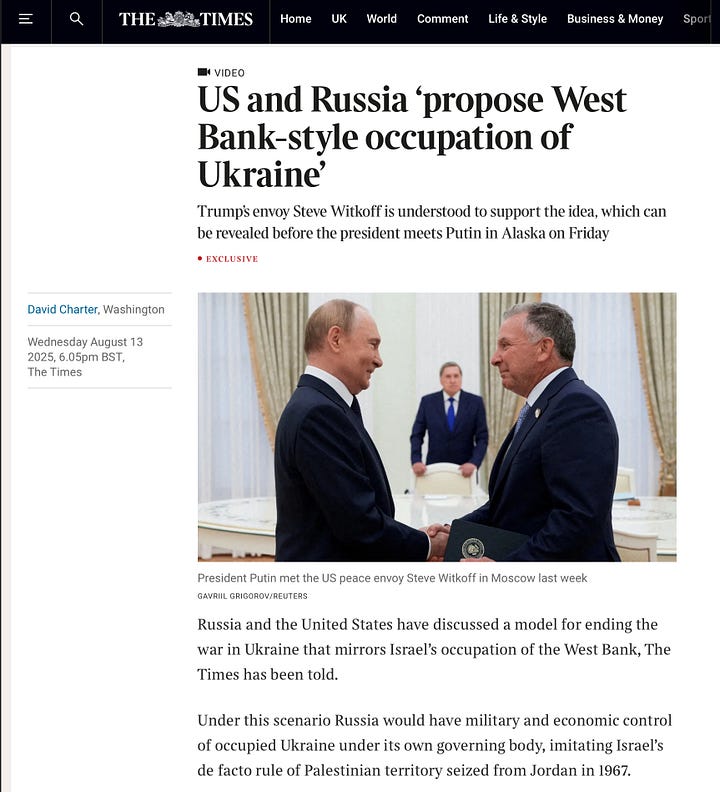
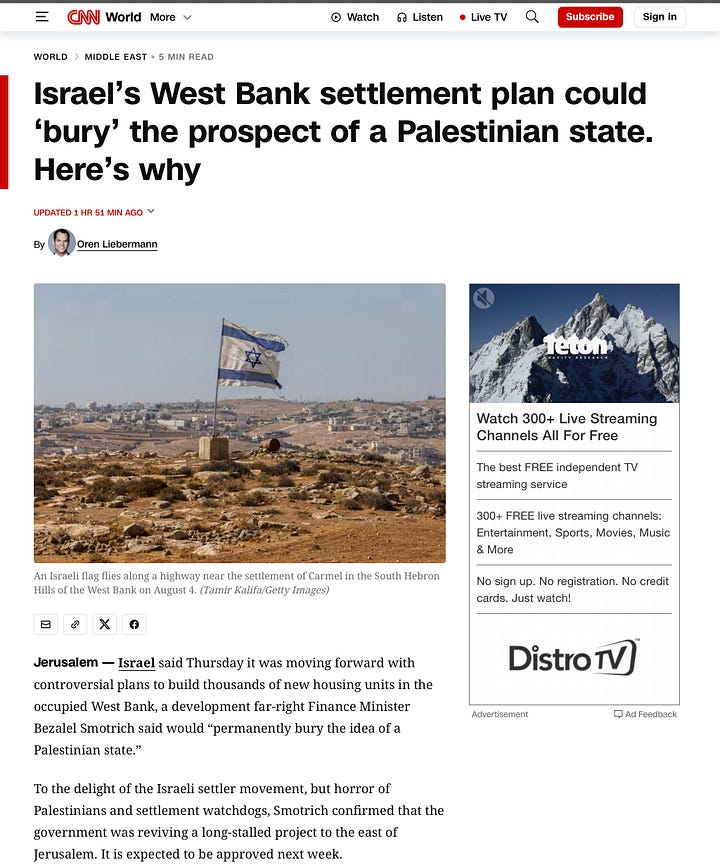
Trump will take any deal he can get, not to save Ukraine or Russia—or to advance U.S. interests. He will take whatever deal that he thinks he can sell as a victory for himself as the “peace president.”
When Chamberlain returned from Munich he recounted Hitler’s promise to Europe and told his nation he had brought peace:
Hitler said: ‘This is the last territorial claim which I have to make in Europe… when this problem is solved, Germany has no more territorial problems in Europe.’
My good friends, for the second time in our history, a British Prime Minister has returned from Germany bringing peace with honour. I believe it is peace for our time… Go home and get a nice quiet sleep.
—Neville Chamberlain, September 30, 1938
History has shown that a weak man in a room with a calculating dictator never ends well. Chamberlain’s handshake in Munich didn’t create peace in Europe anymore than Donald Trump’s handshake in Alaska will. Vladimir Putin will use the opportunity to reverse the tables on Zelenskyy; he will promise Trump “cooperation” in Europe; and he will promise Trump the peace (prize) he’s after.
If there is a “cease fire” Putin will use the time he buys to fortify his positions inside Ukraine, continue his war crimes, his kidnapping of children, and the “Russification” of Ukrainians. And soon enough, on his own timeline, he will roll tanks across Europe.
Heroyam Slava.
If you are able to help me continue my work, please consider upgrading to a paid subscription. It really means a lot. Thank you!
Here are a few benefits to upgrading:
Live Zoom call each Sunday
Ability to comment and access all content
Wonderful, supportive community
Helping independent journalism fill in the gaps for our failing media
Thank you for reading and sharing my work. Grateful for your support.
If you’d like to help me with expenses, here is my DonorBox. 💙
If you’d like to help with my legal fees: stopmikeflynn.com.
My podcast is @radicalizedpod & YouTube — Livestream is Thursdays at 4PM PT.
Bluesky 🦋: jim-stewartson
Threads: jimstewartson


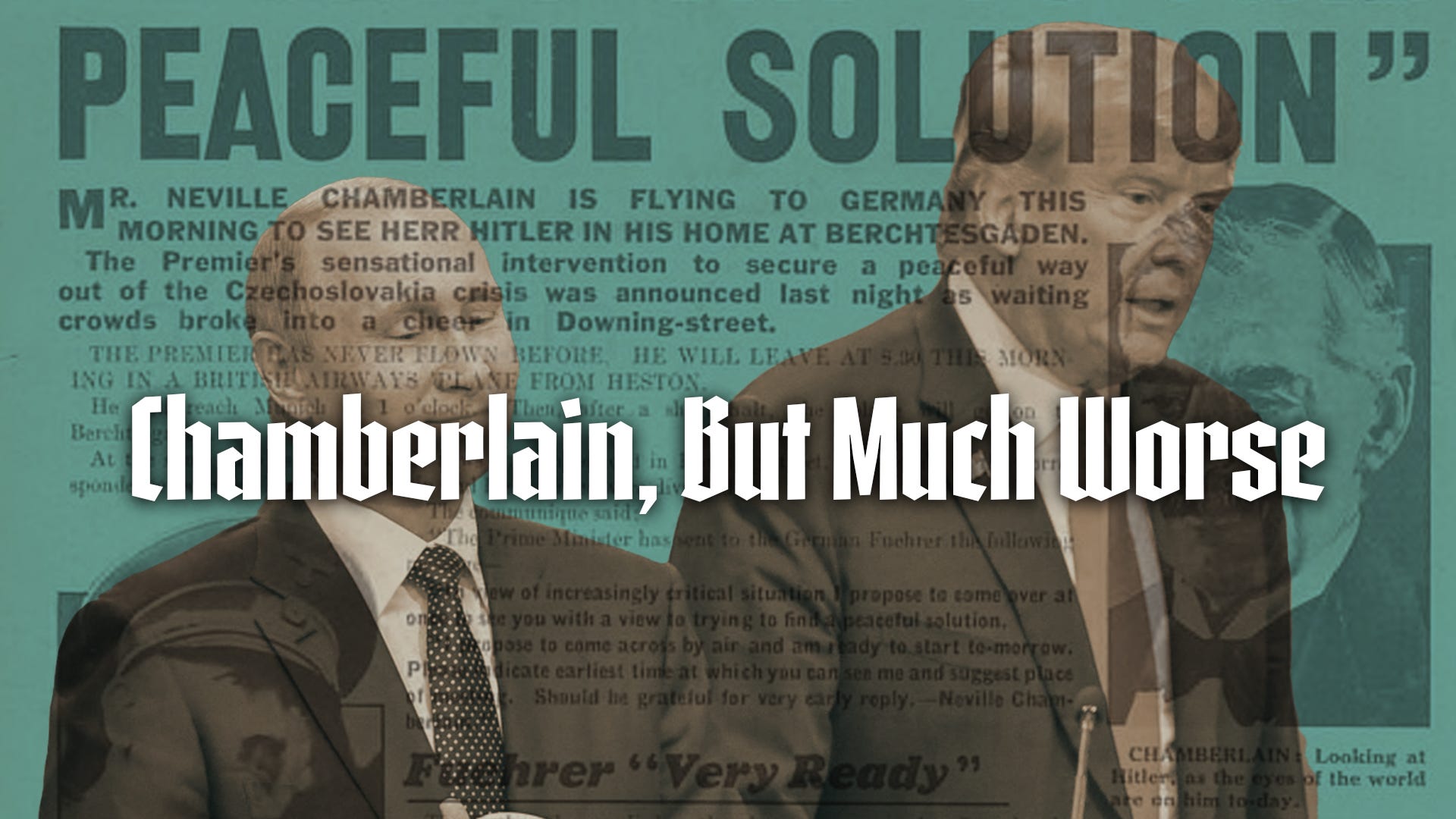
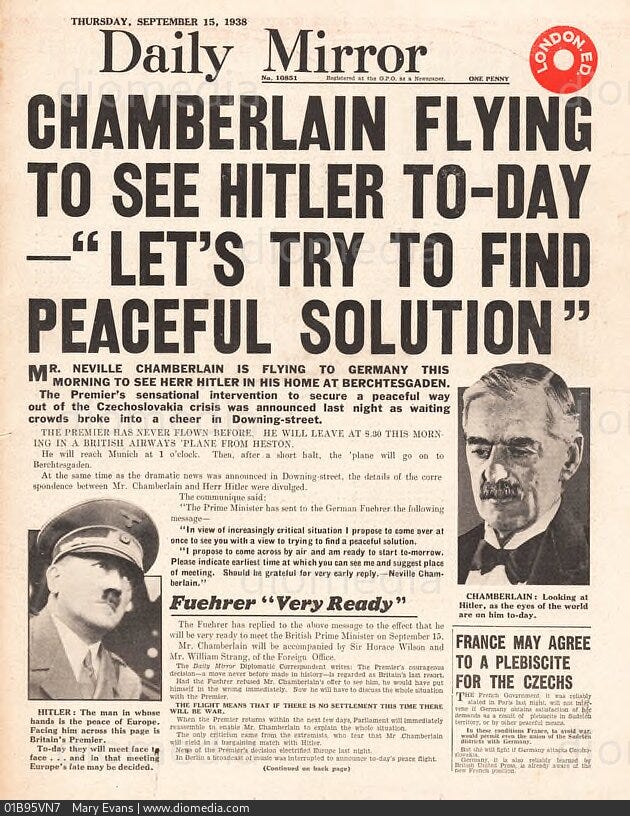

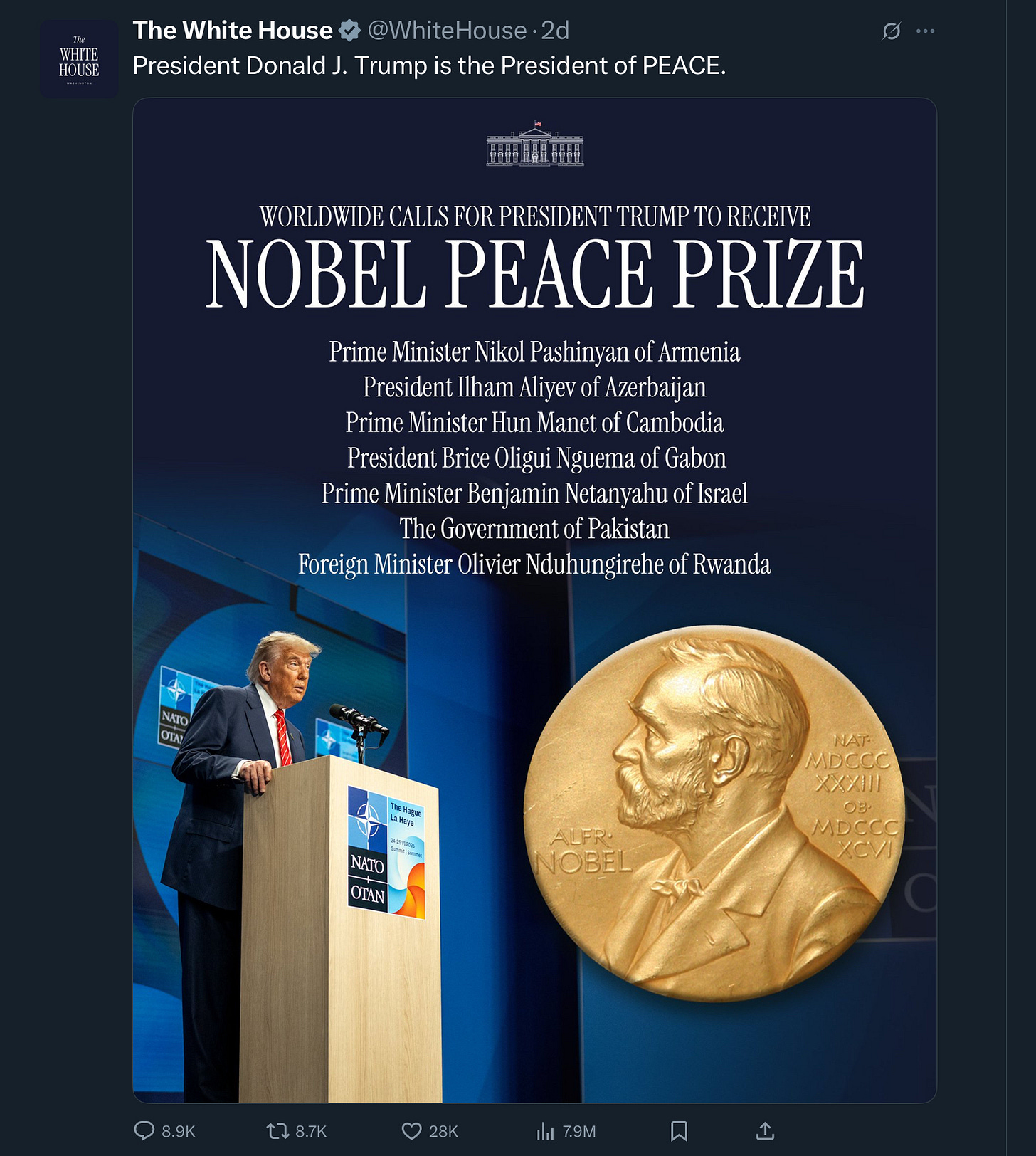
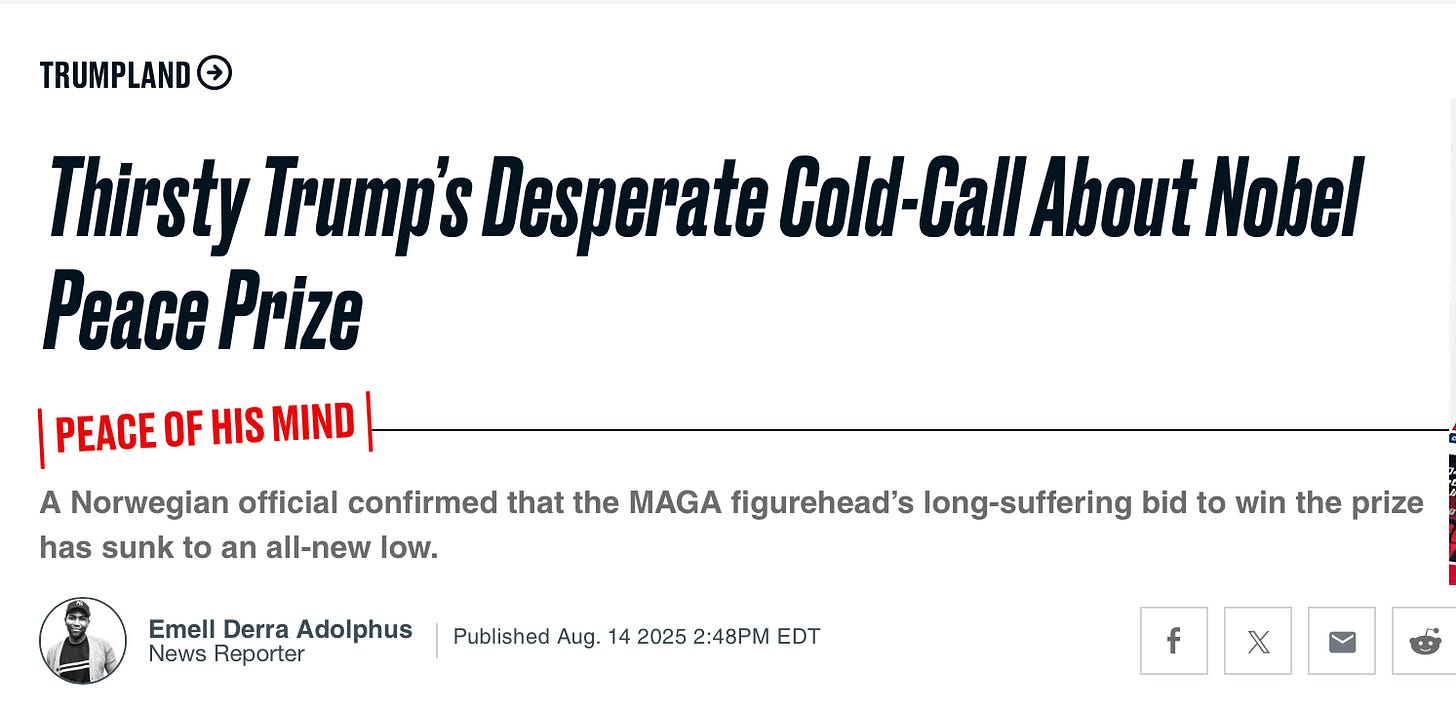
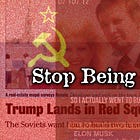
Putin's victory in Alaska is also about annexing it! NPR today (89.7 TampaBay) reports that Russian media had been announcing for weeks that Alaska will be returning to Russia, and Putin is coming here to show us the art of the real deal.
Jim, are you the only one writing about this? Where is Michael McFaul? Where is Fiona Hill? Where are the history professors? Is academia shut down by Trump's lawsuits and withdrawal of funding? Vietnam was not like this. While it took 10 years, and total military blunder, to turn things around, there was plenty of protest from history professors and college students from the beginning. Where are the students now that the country is being trampled into the dust?